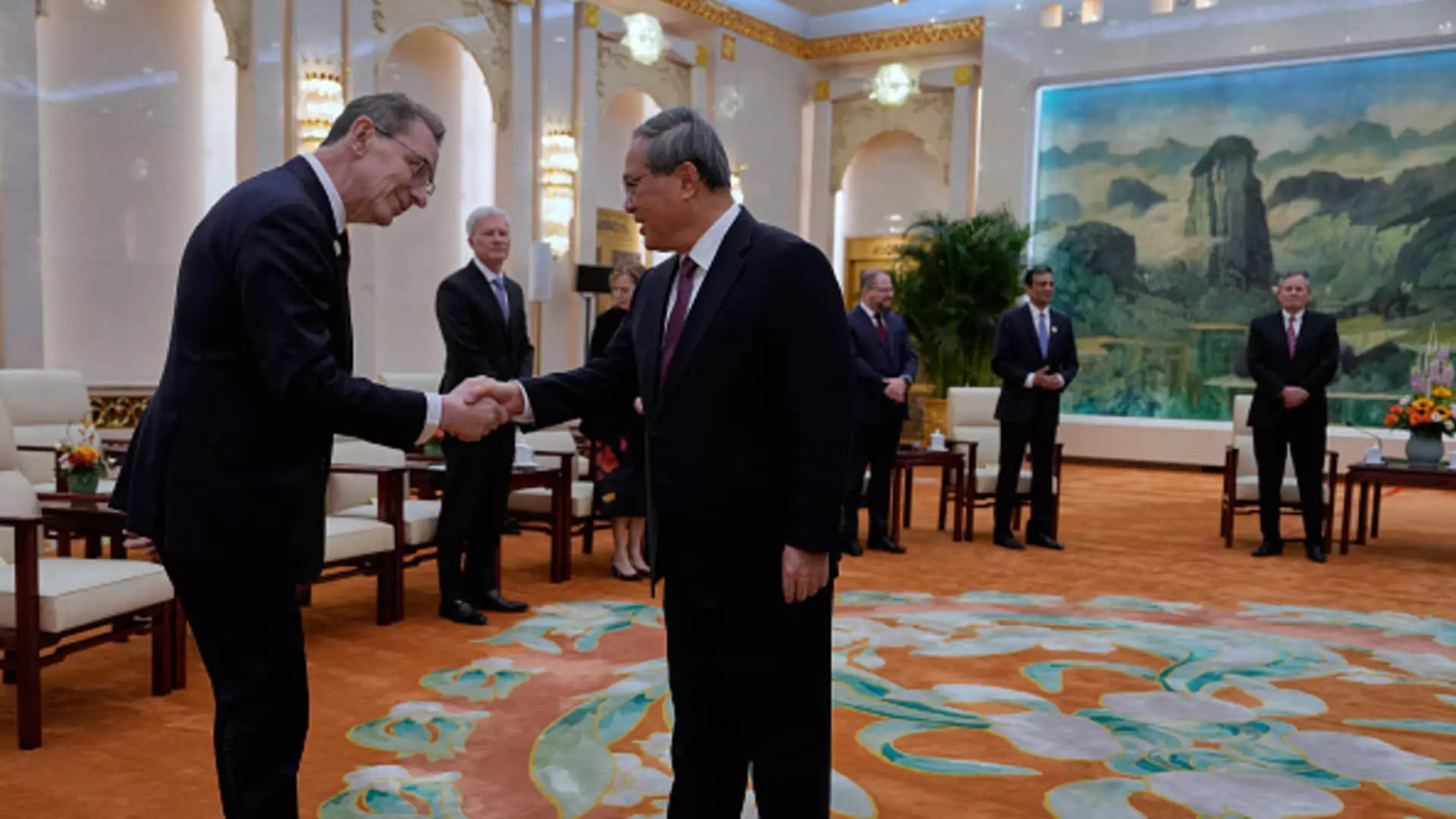Senator Steve Daines’ recent trip to Beijing has sparked considerable debate and raised numerous questions about the U.S.-China relationship. Daines, a supporter of former President Trump and a member of the Senate Foreign Relations Committee, led a delegation of prominent American business leaders, including executives from Qualcomm and Pfizer. Interestingly, this visit signifies the first time a U.S. politician has set foot in China since Trump assumed office. In a political landscape overshadowed by tariffs and trade wars, Daines’ effort might be viewed as either a necessary diplomatic overture or a misguided attempt at engagement at a time when relations are growing increasingly hostile.
Daines’ visit comes at a critical point; both nations are grappling with domestic economic challenges and external pressures. Beijing is actively seeking to bolster foreign investment in light of escalating tariffs imposed by Washington. U.S. businesses have been struggling with ongoing tariffs and the impact of geopolitical tensions, and Daines’ delegation aimed to facilitate a dialogue that could potentially ease these pressures. However, one can’t help but question whether such overtures can truly yield meaningful results in what appears to be a complex web of strategic rivalry.
Trade Dialogues or Political Posturing?
At the heart of Daines’ visit lies the contrasting dynamics of business interests and political ideologies. Daines emphasized the longstanding relationships these American companies have with China, citing over 275 years of combined experience, as a testament to their commitment and investment in China. Yet, this raises a pivotal question: Are these executives simply chasing profit at the expense of essential geopolitical issues, or is their presence a genuine attempt at fostering improved relations?
Critics might argue that amplifying business interests in a country with notable human rights violations and an adversarial global stance undermines ethical considerations. It prompts a broader reflection on whether business and politics can ever truly coexist harmoniously, or whether prioritizing trade over principles dilutes the moral stance of American leadership on the global stage. The dialogue advocated by Daines and his counterparts may appear well-intentioned, but one cannot negate the implications of engaging with a regime that consistently disregards international norms.
The Impending Tariff Storm
Relations between the United States and China have historically oscillated between cooperation and conflict, and Daines’ meeting with Chinese Premier Li Qiang highlights this ongoing turbulence. With Trump’s administration having previously implemented tariffs in response to concerns of trade imbalances and illicit drug trafficking, the looming threat of additional tariffs adds an ominous backdrop to any discussions of cooperation. The possibility of all-encompassing tariffs on countries imposing duties on U.S. goods, in particular, raises alarms about the future of not just U.S.-China relations, but the entire global trading framework.
Li’s call for dialogue over confrontation may resonate with those hoping for a more collaborative international stance, but skepticism surrounding such statements remains prevalent. As economic ties are forced to navigate these treacherous waters, cynics will likely wonder if dialogue is merely a euphemism for appeasement or if it indeed signals a commitment to constructively addressing shared challenges.
Holding the Fentanyl Conversation
A significant aspect of Daines’ discussions also centered on the pressing issue of fentanyl trafficking. The opioid crisis continues to devastate American communities, and the concerns surrounding the flow of fentanyl precursors from China remain critical. By addressing this issue directly in a foreign policy context, it underscores the precarious balance between trade and national security—a balance that feels increasingly fragile.
While Daines may be advocating for a more nuanced approach between the world’s largest economies, one cannot help but notice the inherent contradictions. Engaging with China to address pressing global issues like substance abuse while simultaneously managing an escalating trade war is akin to trying to extinguish a fire while fueling it. It evokes lingering concerns about the efficacy of such engagements in producing tangible global benefits versus merely serving as political theater.
In essence, Daines’ visit to China underscores the complexity of navigating 21st-century geopolitics, where trade, ethics, and national security collide. This pivotal moment may be seen as an opportunity for renewed dialogue or as a troubling sign of political miscalculation within a fraught diplomatic landscape. The future of U.S.-China relations hangs in the balance, complicated further by the ongoing tug-of-war between profit and principle.


Leave a Reply